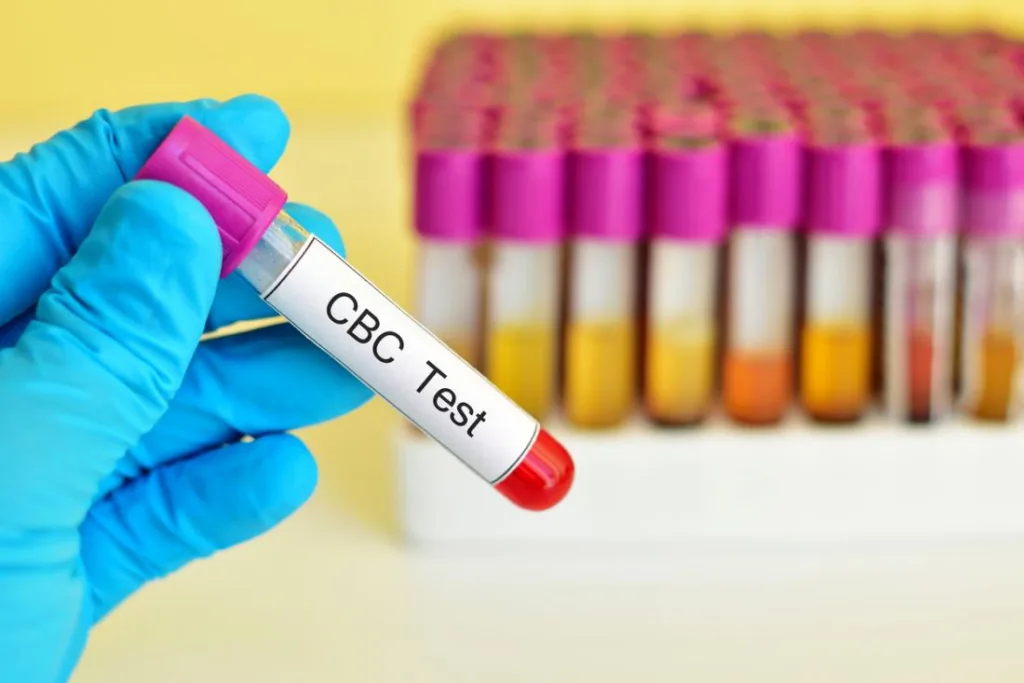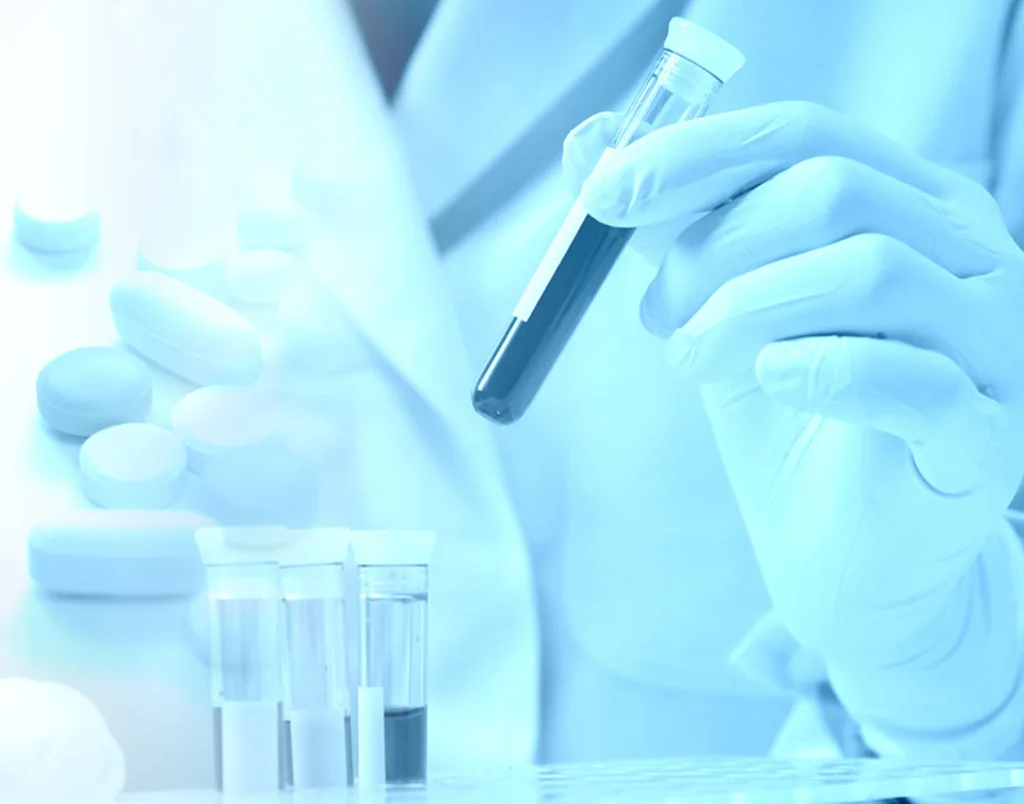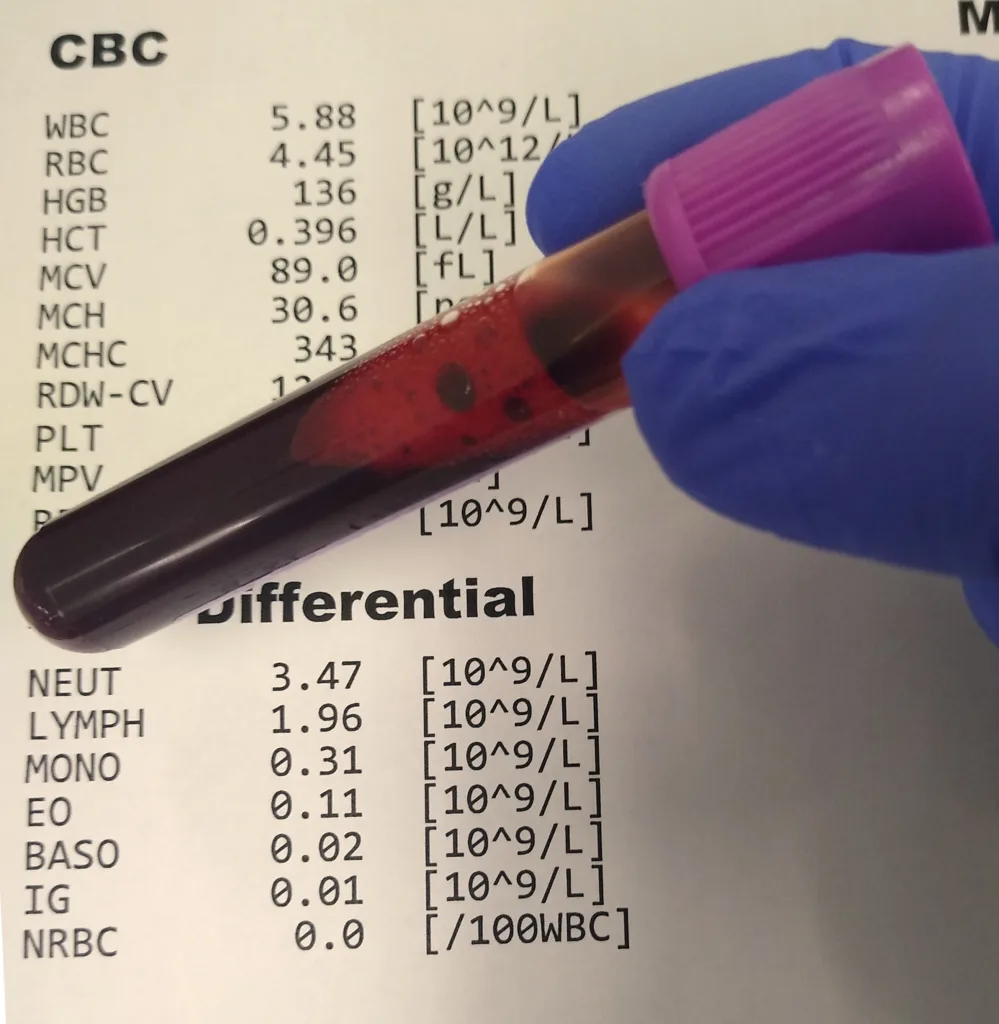A complete blood count (CBC) with differential is a common blood test that measures the levels of different components in your blood, including red blood cells, white blood cells, and platelets. The differential portion of the test refers to the breakdown of the different types of white blood cells in your blood, including neutrophils, lymphocytes, monocytes, basophils, and eosinophils.
One of the most common questions people have about getting a CBC with differential is whether or not they need to fast before the test. The answer to this question depends on whether or not your blood sample will be used for additional tests.
If your blood sample is being tested only for a complete blood count, you can eat and drink norally before the test. However, if your blood sample will be used for additional tests, you may need to fast for a certain amount of time before the test. Your doctor will give you specific instructions on whether or not you need to fast before the test.
Fasting before a blood test is often necessary for tests that measure your blood glucose levels, such as a fasting blood glucose test or an A1C test. This is because eating or drinking before the test can affect your blood sugar levels and make the results less accurate. For other tests, such as a liver function test, cholesterol test, or triglyceride level test, you may need to fast for a certain amount of time before the test to ensure accurate results.
When you go in for a CBC with differential, the healthcare provider will first draw a small amount of blood from a vein in your arm. The blood will then be sent to a laboratory for analysis. The laboratory will use special equipment to measure the levels of different components in your blood, including the number and types of white blood cells.
The CBC with differential is an important test that can help your healthcare provider diagnose a variety of conditions, including infections, anemia, and certain types of cancer. By measuring the different components in your blood, the test can provide important information about your overall health and well-being.
Fasting before a CBC with differential depends on whether or not your blood sample will be used for additional tests. Your doctor will provide you with specific instructions on whether or not you need to fast before the test. The CBC with differential is an important test that can provide valuable information about your health, so be sure to follow any instructions from your healthcare provider and ask any questions you may have.
Does CBC and Differential Testing Require Fasting?
A CBC or complete blood count test does not require fasting, which means you can eat and drink normally before the test. However, a differential test, which is a part of the CBC test that looks at the different types of white blood cells in your blood, may require fasting. In some cases, your doctor may ask you to fast for a certain amount of time before the test, especially if they need to measure specific levels in your blood, such as glucose or cholesterol. It is important to follow your doctor’s instructions carefully to ensure accurate test results.

What Does a Complete Blood Count (CBC) With Differential Test For?
A CBC with differential is a blood test that measures the different components of blood, including red blood cells, white blood cells, and platelets. The differential portion of the test specifically counts the different types of white blood cells in the blood, which include neutrophils, lymphocytes, monocytes, basophils, and eosinophils.
This test is commonly used to evaluate and diagnose a variety of medical conditions, such as infections, anemia, leukemia, and autoimmune disorders. The results of the CBC with differential can help doctors identify any abnormalities or imbalances in a patient’s blood cells, which can then guide further diagnostic testing and treatment decisions.
In summary, a CBC with differential is a comprehensive blood test that assesses the levels and types of blood cells in the body, including the different types of white blood cells. It is an important tool in the diagnosis and management of varous medical conditions.
How Does Fasting Impact Complete Blood Count Results?
Yes, fasting can affect CBC (complete blood count) results. A CBC test is a common blood test that measures various components of blood, such as red blood cells, white blood cells, and platelets. When a person consumes food, it can affect the levels of certain components in the blood, which can impact the accuracy of CBC results. Specifically, consuming food can cause an increase in white blood cell count and a decrease in red blood cell count. To ensure consistent and accurate CBC results, it is recommended that patients fast for a certain period of time befoe the blood draw. This allows for more consistent and reliable results, which can be important for monitoring and diagnosing various medical conditions. Therefore, it is important to follow the instructions provided by healthcare professionals regarding fasting requirements prior to CBC testing.
Blood Tests Requiring Fasting
There are several blood tests that require fasting before the blood sample is collected. The reason for fasting is to ensure that the results obtained are accurate and not influenced by recent food intake. The blood tests that usually require fasting include:
1. Blood glucose test: This test measures the amount of glucose (sugar) in the blood and is used to diagnose diabetes or monitor blood sugar levels. Fasting for at least 8 hours is recommended before this test.
2. Liver function test: This test measures the levels of varius enzymes and proteins in the blood to evaluate the liver’s health. Fasting for at least 8 hours is recommended before this test.
3. Cholesterol test: This test measures the levels of different types of cholesterol in the blood and is used to assess the risk of heart disease. Fasting for at least 9-12 hours is recommended before this test.
4. Triglyceride level test: This test measures the levels of fats called triglycerides in the blood and is used to assess the risk of heart disease. Fasting for at least 9-12 hours is recommended before this test.
5. High-density lipoprotein (HDL) level test: This test measures the levels of “good” cholesterol in the blood and is used to assess the risk of heart disease. Fasting for at least 9-12 hours is recommended before this test.
6. Low-density lipoprotein (LDL) level test: This test measures the levels of “bad” cholesterol in the blood and is used to assess the risk of heart disease. Fasting for at least 9-12 hours is recommended before this test.
7. Basic metabolic panel: This test measures various chemicals in the blood, including electrolytes, glucose, and kidney function. Fasting for at least 8-12 hours is recommended before this test.
8. Renal function panel: This test measures the levels of various chemicals in the blood to evaluate kidney function. Fasting for at least 8-12 hours is recommended before this test.
In summary, fasting is required for several blood tests to obtain accurate results. It is important to follow the fasting instructions provided by your healthcare provider to ensure the accuracy of the test results.
Difference Between CBC and CBC with Differential
A CBC (Complete Blood Count) is a blood test that measures the total number of white blood cells, red blood cells, and platelets in your blood. It is a common blood test that helps doctors evaluate your overall health and detect various medical conditions.
On the other hand, a CBC with differential is a more detailed blood test that measures the number of each type of white blood cell in your blood, in addition to the total number of white blood cells, red blood cells, and platelets. This test provides a breakdown of the diffrent types of white blood cells, such as neutrophils, lymphocytes, monocytes, eosinophils, and basophils.
A CBC with differential is usually ordered by a doctor when there is a suspicion of an underlying infection, inflammation, or immune system disorder. It helps doctors diagnose and monitor a wide range of medical conditions, such as leukemia, anemia, infections, allergies, autoimmune disorders, and more.
In summary, while a CBC provides a broad overview of your blood count, a CBC with differential provides a more detailed breakdown of the different types of white blood cells and is often used to diagnose and monitor specific medical conditions.

Drinking Before a CBC Blood Test
For a CBC (Complete Blood Count) blood test, it’s generally recommended to fast for 8 to 12 hours before the test. During this time, you should avoid any food or beverages, except for water. This is because food and drinks can alter the composition of your blood and affect the accuracy of the test results. Therefore, drinking anything other than water before a CBC blood test is not recommended. It’s important to follow your doctor’s or lab technician’s instructions carefully to ensure accurate and reliable results.
How Long Does a Complete Blood Count (CBC) With Differential Take?
A CBC with differential is a commonly ordered blood test that provides important information about the health of a patient. The test measures the levels of various components of blood, such as red blood cells, white blood cells, and platelets. The differential component of the test specifically measures the different types of white blood cells present in the blood sample.
The time it takes to receive the results of a CBC with differential can vary depending on a few factors. In emergency situations, the results are typically reported back in less than an hour to allow for prompt medical intervention. For routine CBCs for hospital in-patients, the results are usually available in three to six hours.
However, if the sample requires additional testing or if there are technical difficulties during the analysis, this can prolong the time it takes to receive the results. Additionally, certain factors such as high patient volume or staffing shortages in the laboratory may also affect the turnaround time for results.
In summary, the time it takes to receive the results of a CBC with differential can range from less than an hour in emergency situations to several hours for routine testing. It is important to note that delays may occur due to various factors, but healthcare professionals strive to provide the results as quickly as possile to facilitate appropriate medical care.
The Effects of Dehydration on Complete Blood Count Results
Yes, dehydration can affect CBC (Complete Blood Count) results. The CBC test evaluates the overal health of blood cells circulating in the body, and it includes several components, such as hemoglobin, hematocrit, and red and white blood cell counts. Hematocrit, which measures the percentage of red blood cells in the blood, can be skewed as a result of dehydration. When the body is dehydrated, the blood volume decreases, and the concentration of red blood cells increases, leading to a falsely elevated hematocrit result. This can, in turn, affect other CBC components, such as the red blood cell count and mean corpuscular volume. Therefore, it is essential to ensure proper hydration before taking the CBC test to obtain accurate results.
How Long Does it Take to Receive CBC With Differential Results?
A CBC with differential test is a common blood test that measures different components of your blood, including red blood cells, white blood cells, and platelets. The good news is that the results of this test are usually available to your doctor within 24 hours. However, it’s important to keep in mind that the actual turnaround time for your results may vary depending on the laboratory where the test is being conducted, as well as other factors such as the volume of tests being processed at that time. If you are concerned about how long it may take to receive your CBC with differential results, it’s alwys a good idea to discuss this with your doctor or the laboratory where the test was performed. They can provide you with more specific information about when you can expect to receive your results.

Blood Tests That Do Not Require Fasting
Many blood tests do not require fasting, as they are not affected by food intake. These tests include hemoglobin levels, which measure the amount of oxygen-carrying protein in red blood cells. Renal function tests, which assess the kidneys’ ability to filter waste from the blood, and liver function tests, which evaluate the liver’s ability to metabolize drugs and toxins, also do not require fasting. Thyroid hormone tests, which measure the levels of thyroid hormones in the blood, are also not affected by food intake. Similarly, electrolyte tests, which measure sodium and potassium levels in the blood, can be done at any time of day and do not require fasting. In summary, most blood tests do not require fasting, but some specific tests such as glucose and lipid tests do require it.
Consequences of Not Fasting Before a Blood Test
Fasting before a blood test is often required to ensure accurate results. If you don’t fast before a test that requires it, the results may not be reliable. This is because fasting helps to remove certain substances from your bloodstream that can interfere with the accuracy of the test. For example, after eating a meal, your blood sugar levels may be elevated, which could affect the results of a glucose tolerance test. Additionally, consuming food or drink before a test may cause your body to release certain hormones or enzymes that can also affect the results.
If you forget to fast and eat or drink something before your test, it’s important to contact your doctor or lab rigt away. They can advise you on whether the test can still be done, or if you need to reschedule your appointment to ensure accurate results. In some cases, you may need to fast for a certain amount of time before the test can be performed, so it’s important to follow any instructions carefully. Overall, fasting is an important step in preparing for a blood test, and skipping it can lead to inaccurate results that may affect your healthcare treatment.
Blood Tests Requiring 12 Hour Fasting
Several blood tests require a 12-hour fasting period before the test can be performed accurately. One of the most common tests is the blood glucose test, whih measures the amount of glucose in a person’s blood. Other tests that require fasting include the Gamma Glutamyl Transferase (GGT) test, which is used to diagnose liver disease, the Glucose Tolerance Test, which is used to diagnose diabetes, and the Liver Function Test and Renal Function Test, which are used to assess the health of the liver and kidneys, respectively. Additionally, the Vitamin B12 Test requires fasting to ensure accurate results. It is important to follow the fasting instructions closely before these tests to ensure that the results are reliable.
Drinking Water Before a Blood Test
It is generally recommended to start drinking more fluids the day before your blood draw and continue to do so until the day of the test. While excessive amounts of water are not necessary, it is recommended that an adult should consume at least 64 ounces of water per day for good health. This amount is more than adequate for having your blood drawn and should provide sufficient hydration for accurate test results. Therefore, it is recommended to maintain your normal daily water intake before a blood test to ensure proper hydration levels.
Conclusion
In conclusion, a CBC with differential is a crucial blood test that provides important information abut the health of an individual. It measures the number of red blood cells, white blood cells, and platelets in the blood, as well as the different types of white blood cells. This test can be impacted by food consumption, so it is recommended that patients fast before the test to ensure consistency, quality, and repeatability of the results. A CBC with differential is often used to diagnose a variety of conditions, including anemia, infections, and leukemia. It is an essential tool for healthcare professionals in identifying and treating a wide range of medical conditions. Therefore, it is important for individuals to follow the recommended guidelines for this test to ensure accurate and reliable results.
